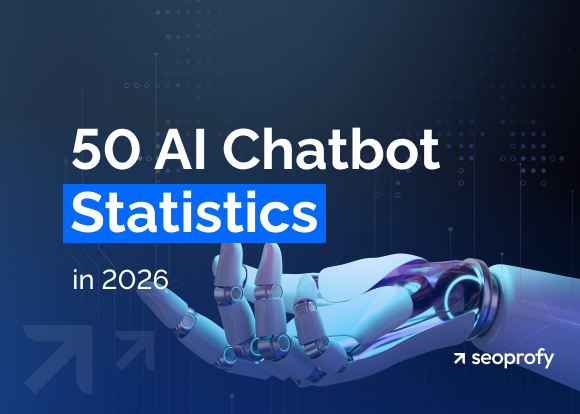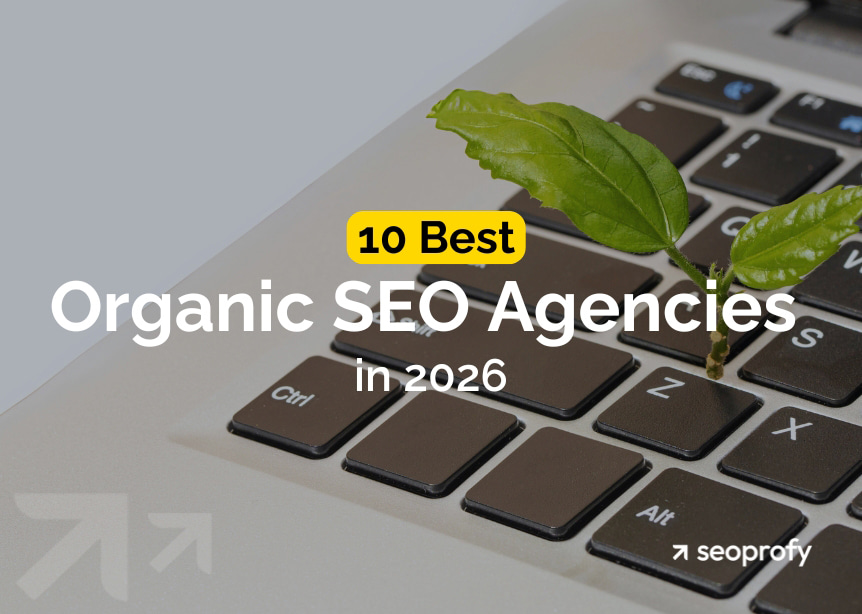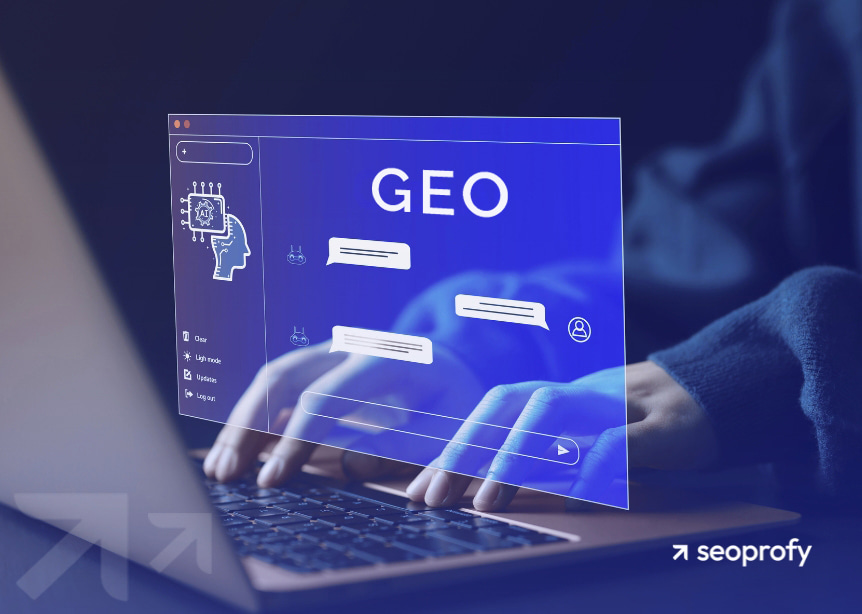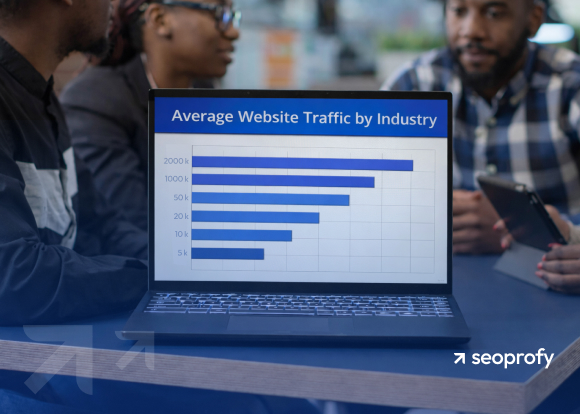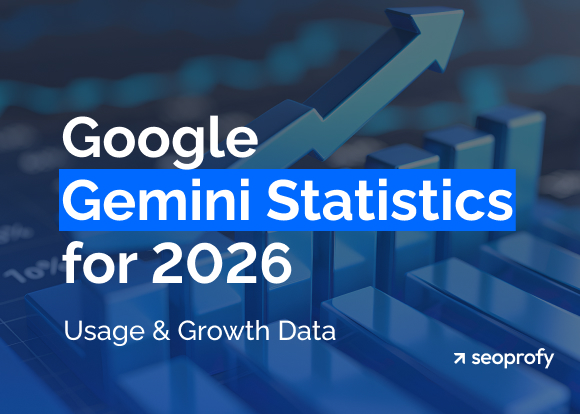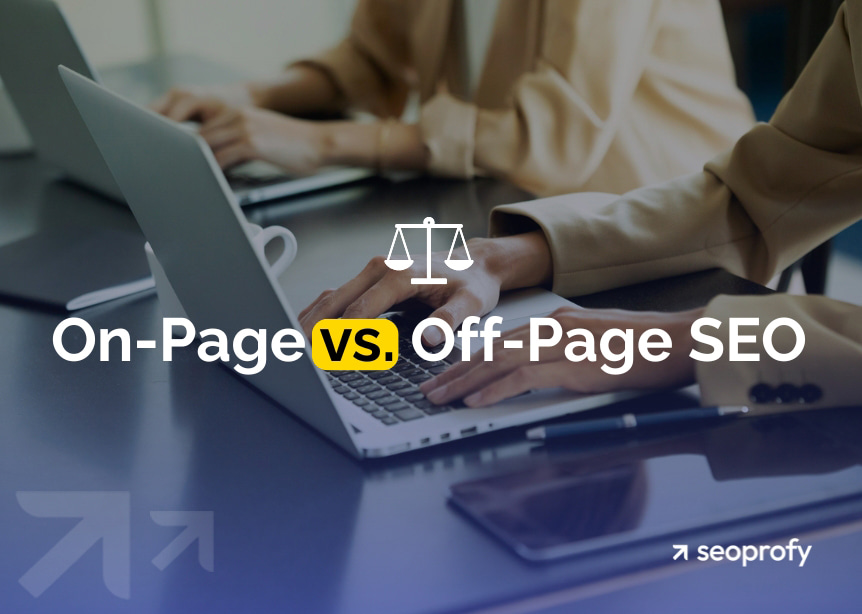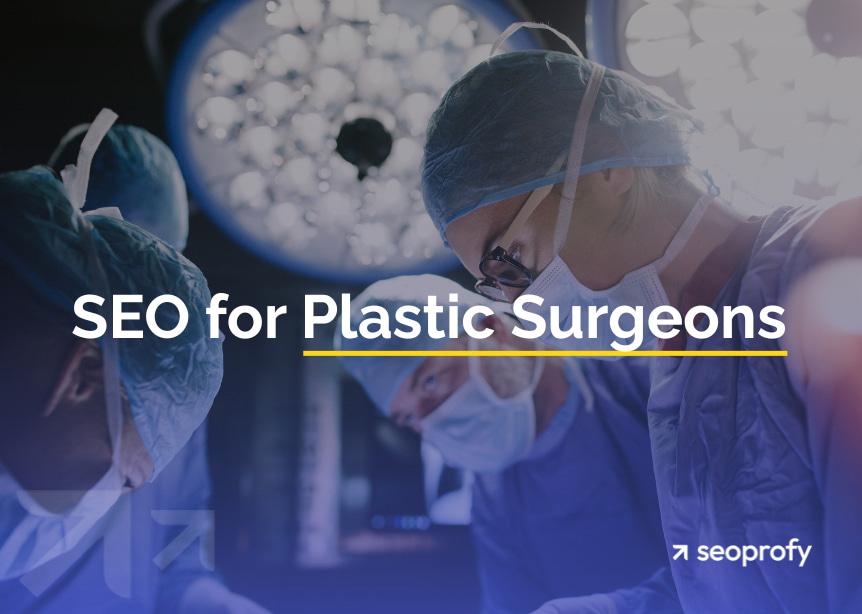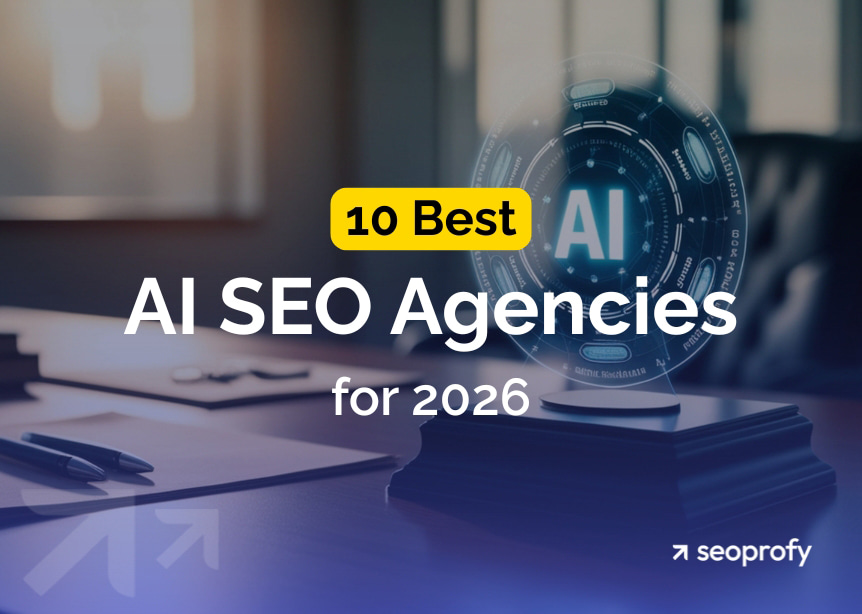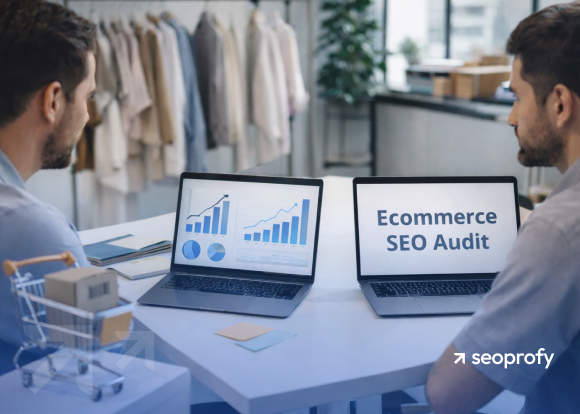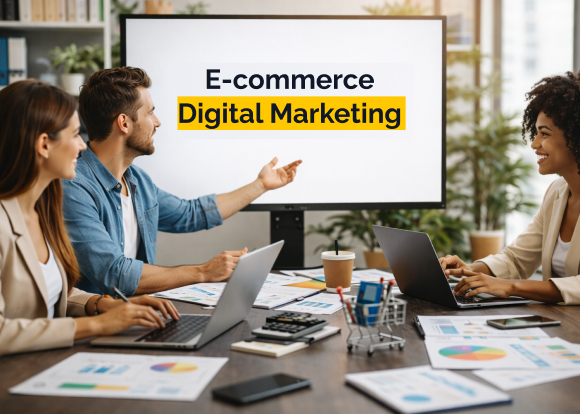When it comes to paid vs. organic search, some businesses may feel they need to choose one over the other. But here’s the reality: both are important if you want to succeed online. It’s just about understanding when to use each digital marketing strategy and how they can work hand-in-hand to boost your results.
The challenge lies in finding the right balance. The downside of going too extreme in search engine marketing is that you could either burn your budget on aggressive PPC campaigns or wait endlessly for organic rankings to improve. No more choosing sides and questioning your approach. Our professional SEO company provides the comparison of organic search vs paid search, explains when to use each, and how to mix them for the best results.
- The #1 result in Google organic search has a click-through rate (CTR) of 27.6%.
- Natural search is a patient journey, typically taking 6-12 months to see results, while paid search offers quick visibility but comes with ongoing click-based expenses.
- A well-rounded digital marketing approach should leverage both approaches to maximize visibility, reach, and long-term growth potential.
Organic vs Paid Search in Numbers
Before comparing paid and organic search strategies, let’s look at what the data reveals. And the data reveals an interesting story about user behavior during online searches.
Search Ad Performance
As of the second quarter of 2024, search ads have seen an average CTR of 1.63% globally.
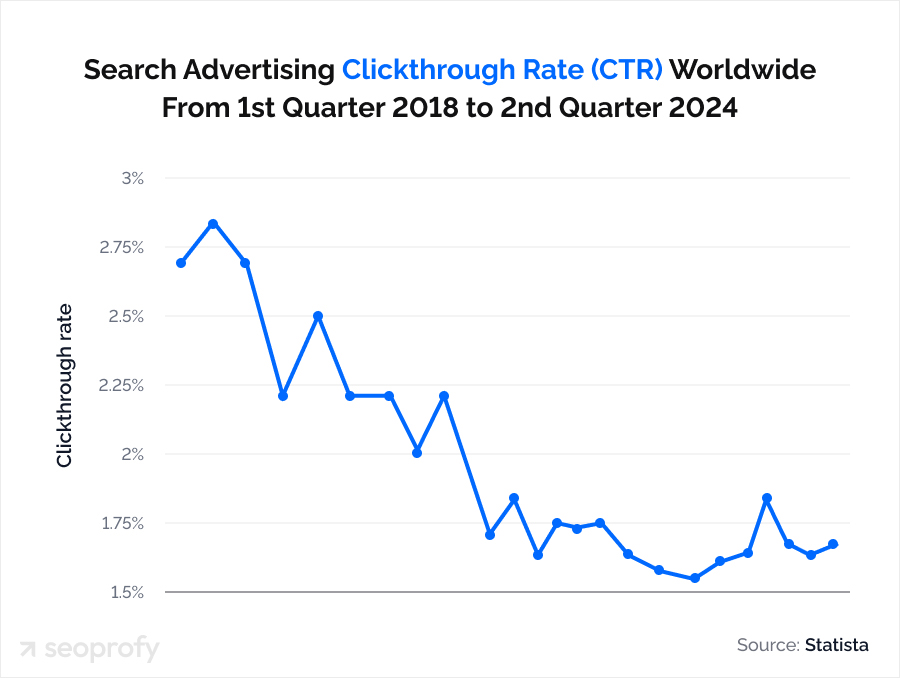
CTR varies across different industries and regions. Take the US market as an example. Some sectors have far more clicks than others:
- Highest performer: Arts & entertainment with a 13.04% CTR
- Lowest performer: Legal services with a 5.3% CTR
The Power of Organic Search
In the organic search vs paid battle, the CTR of the #1 result in Google leads the pack — it’s 27.6%. So, more than one in four people click the first organic result, which significantly outperforms Google ads.
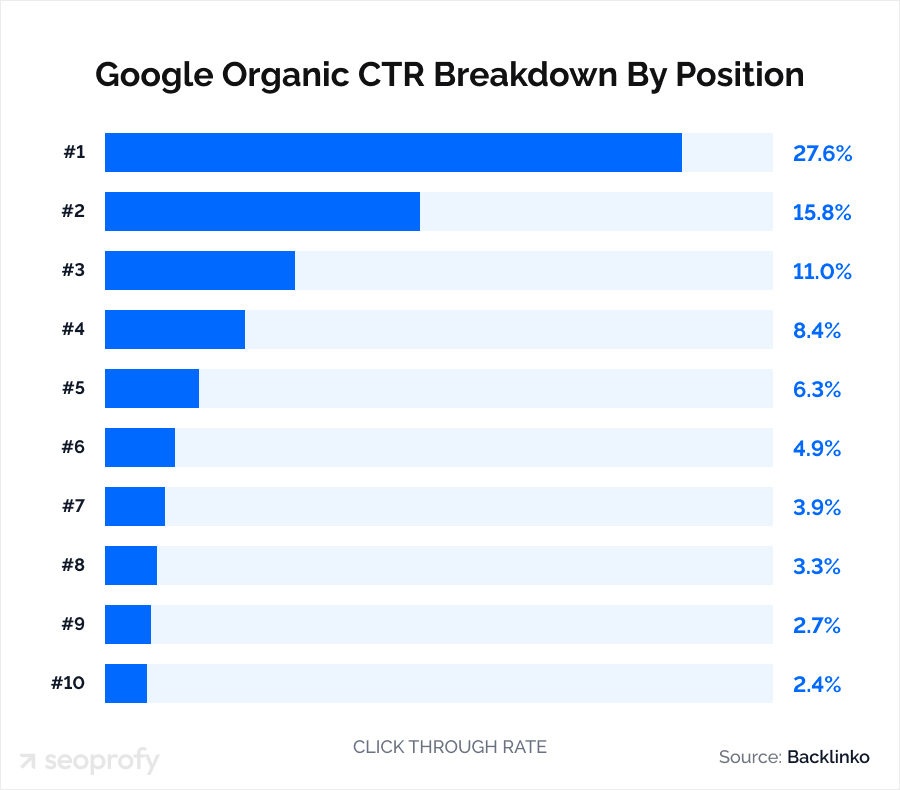
What This Means for Business
Even the best-performing paid search ads in arts & entertainment (13.04%) still fall well short of the top organic Google search result (27.6%).
Trust is a huge factor here. Search engine users tend to believe organic results are more legitimate and relevant. They know these listings got there because of quality content. This is how people have developed “ad blindness” — they just scroll past paid results to find the organic search results.
With all these statistics, we could have ended our article with the conclusion: organic search remains the king, but here’s another stat. Between 2024 and 2030, marketers are expected to spend an additional $99.1 billion on search ads, which is a 72.31% increase. Thus, while users might gravitate toward organic results, marketers still realize that paid search offers invaluable returns that can’t be overlooked.
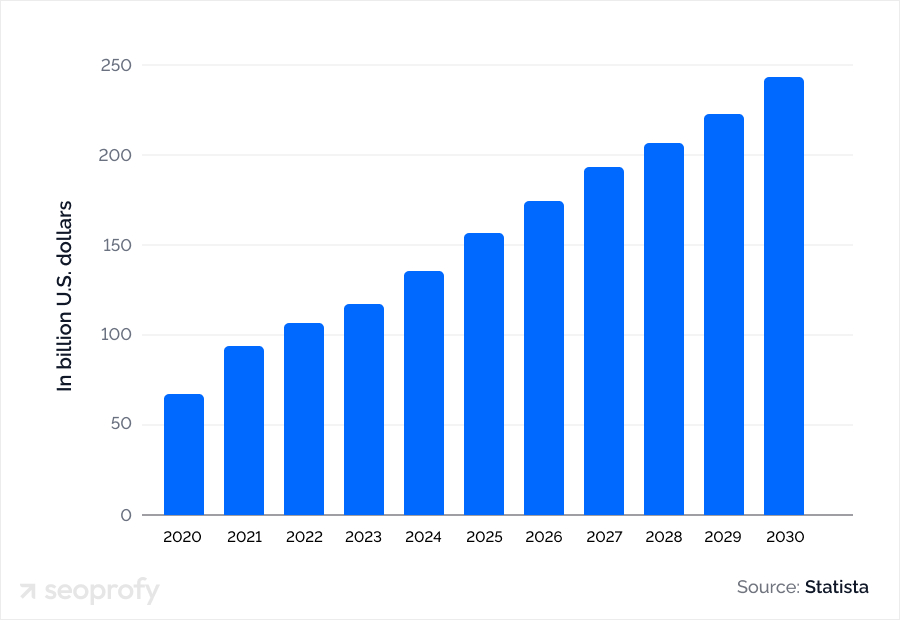
So, let’s get down to the benefits and challenges of paid and organic search, determine in which cases each of them works, and how to combine them for the maximum result.
What Is Organic Search?
Organic search is the process of getting your website noticed on search engine results pages (SERPs) through unpaid, natural methods. The impact of organic search on business can be substantial, as it drives high-quality, sustainable traffic without the need for ongoing ad spend.
When your content aligns perfectly with user queries, search engines take note. Google evaluates over 200 criteria when determining who earns the top rankings, for example, depth and thoroughness of topic coverage, content freshness, page loading speed, and clear site architecture.
Your rank in organic results depends on how well you’ve optimized your online presence, and this is the essence of SEO (search engine optimization). Many websites face the frustrating problem of getting traffic but not sales; it’s not enough to just attract visitors. But SEO lets you both attract visitors and convert them into customers.
How Organic Search Works
Whenever you look for something online, Google and other search engines examine billions of web pages and organize them in a way that best addresses your inquiry. Let’s explore these formats.
Standard Organic Results
If you type in “how to calculate ROAS,” you’ll see the classic listings. Each one has:
- A blue clickable title (known as the meta title)
- A black text description (the meta description)
- The website URL
- Sometimes extra features like star ratings, images, or publication dates.
These standard results remain at the heart of Google searches.
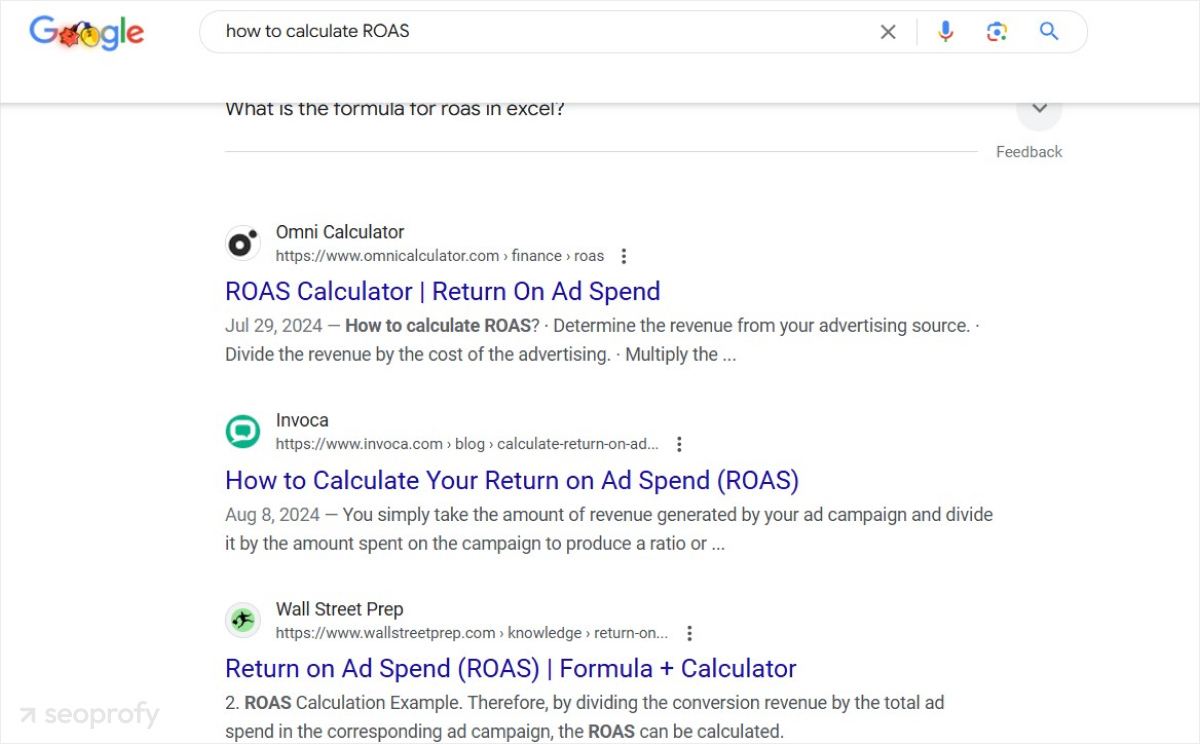
AI Overviews
If you type in “requirements to start a business,” you’ll notice a summary at the top. This is an AI-generated overview designed to give you actionable information without needing to scroll. It is concise, highlights the essentials, and aims to answer your question immediately.
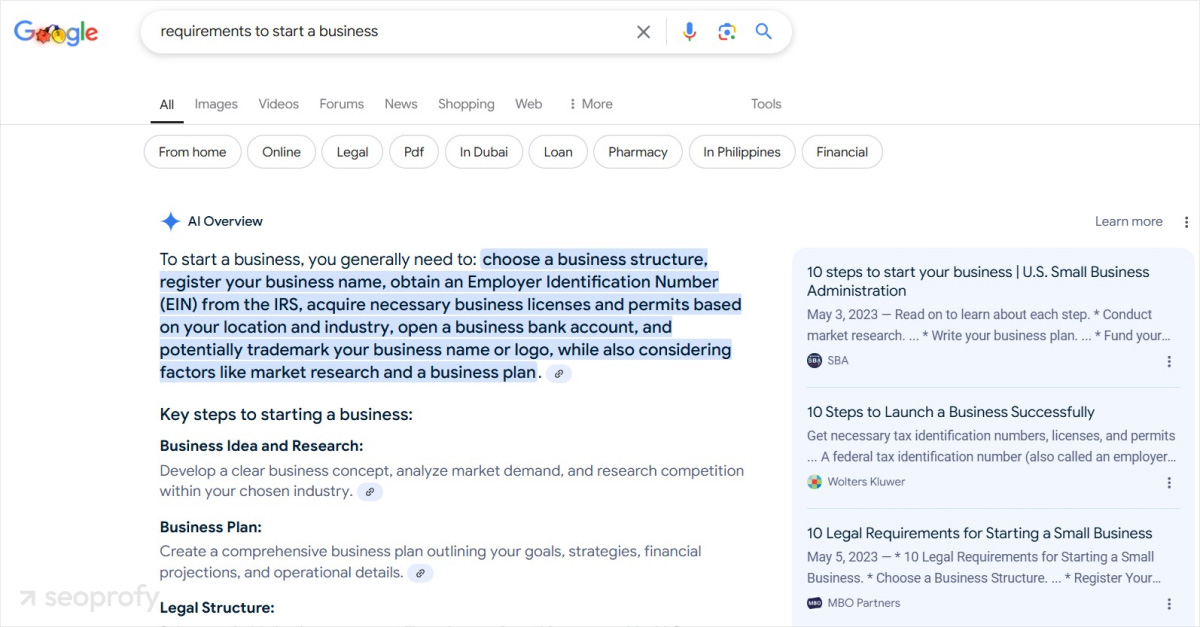
Featured Snippets
If you search for “average marketing budget for small business,” you’ll notice a featured snippet, a “position zero” that appears above everything else. It aims to provide an instant answer so you don’t have to scroll down.
Featured snippets come in different styles to show off their information in the best way, depending on your query:
- Paragraph snippets for definitions and explanations
- List snippets to show steps or ranked items in order
- Table snippets to organize numbers and comparisons
- Video snippets for how-to content
If you want your content to appear in these special boxes at the top, you should create pages that give clear, direct answers to common questions.
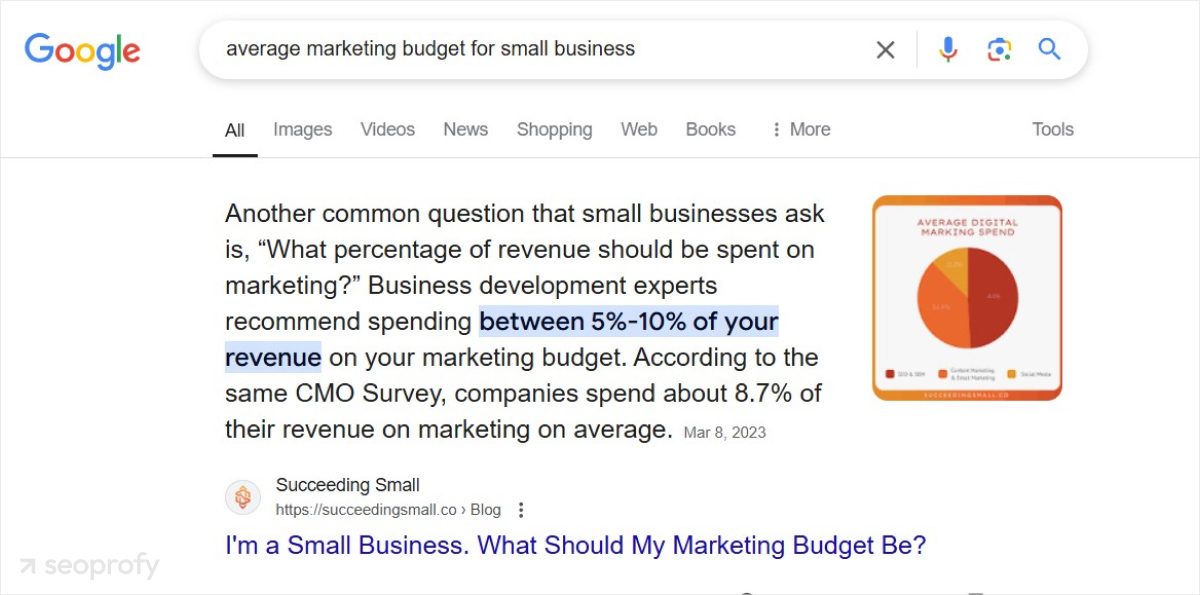
Local Pack Results
Type “digital marketing agencies near me,” and you’ll see a map at the top with three local spots right underneath. This is called the Local Pack, it serves to provide all the important details at a glance:
- Business name, overall star rating, and number of reviews
- Years in business
- Working hours
- Website links where available
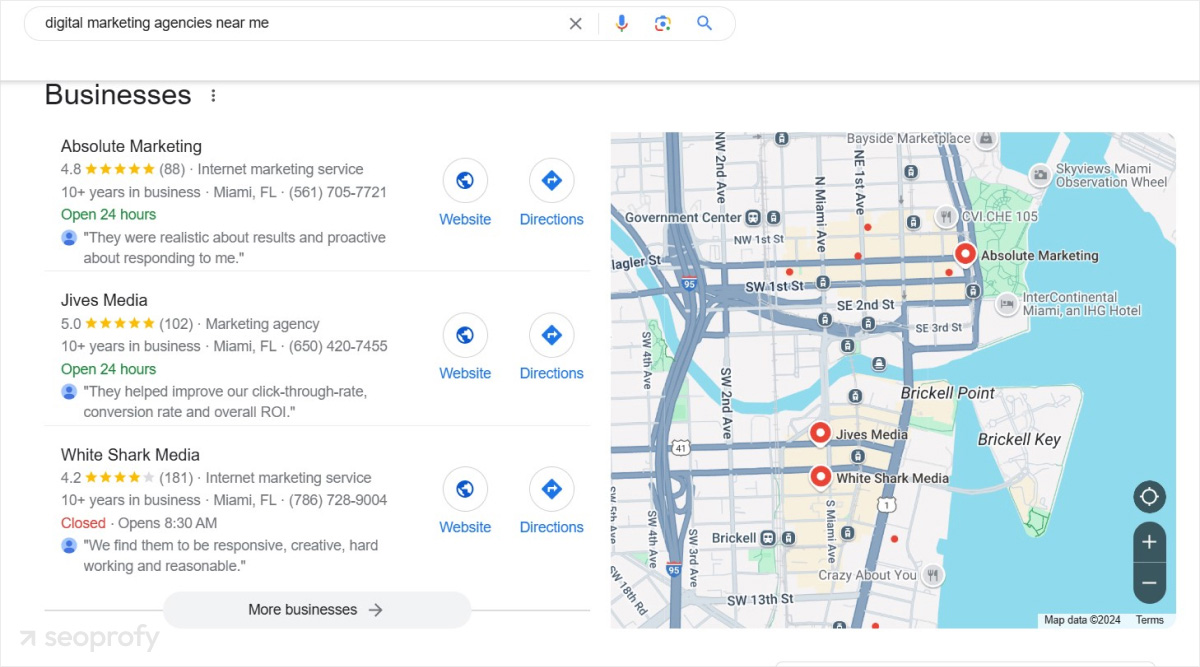
People Also Ask
Have you seen those expandable question boxes in the results? This is the “People Also Ask” section. Just start typing “what is digital marketing” and Google will offer the exact questions other people are curious about.
Each box:
- Shows a common related question
- Expands to show a brief answer
- Links to the source website
These boxes appear throughout the search engine results page, not just in one place.
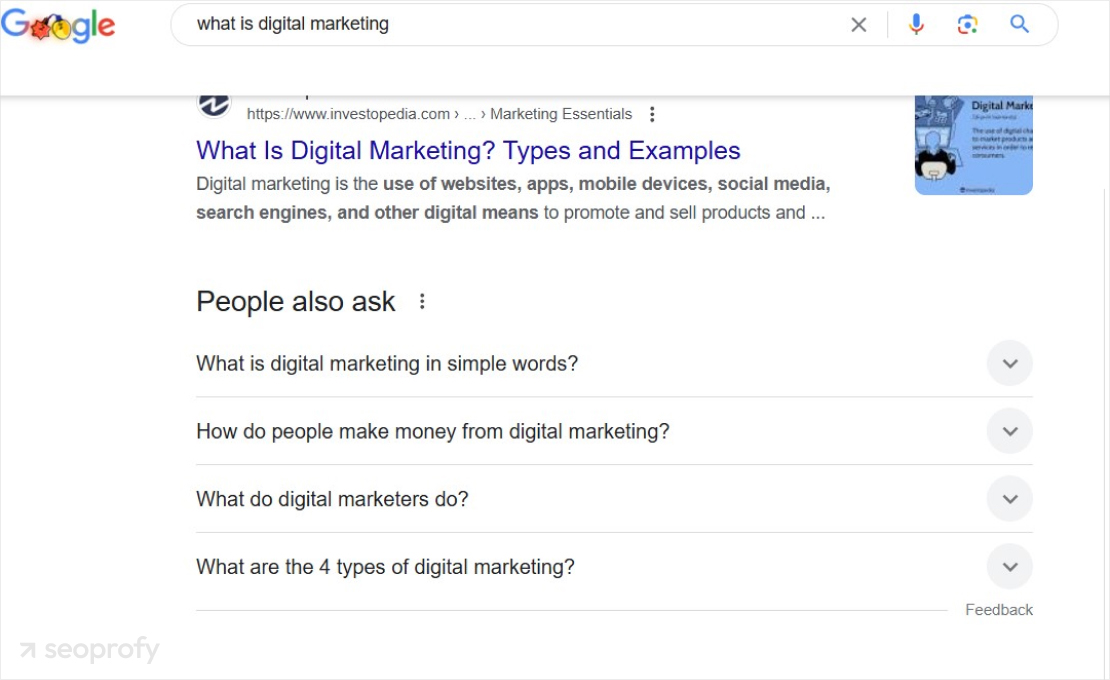
Image Pack Results
Some searches need more than just pure words. Type in “marketing funnel stages,” and Google will treat you to a rich strip of images. These images come with:
- A title
- The website name
- A “Show more images” button to see more similar images
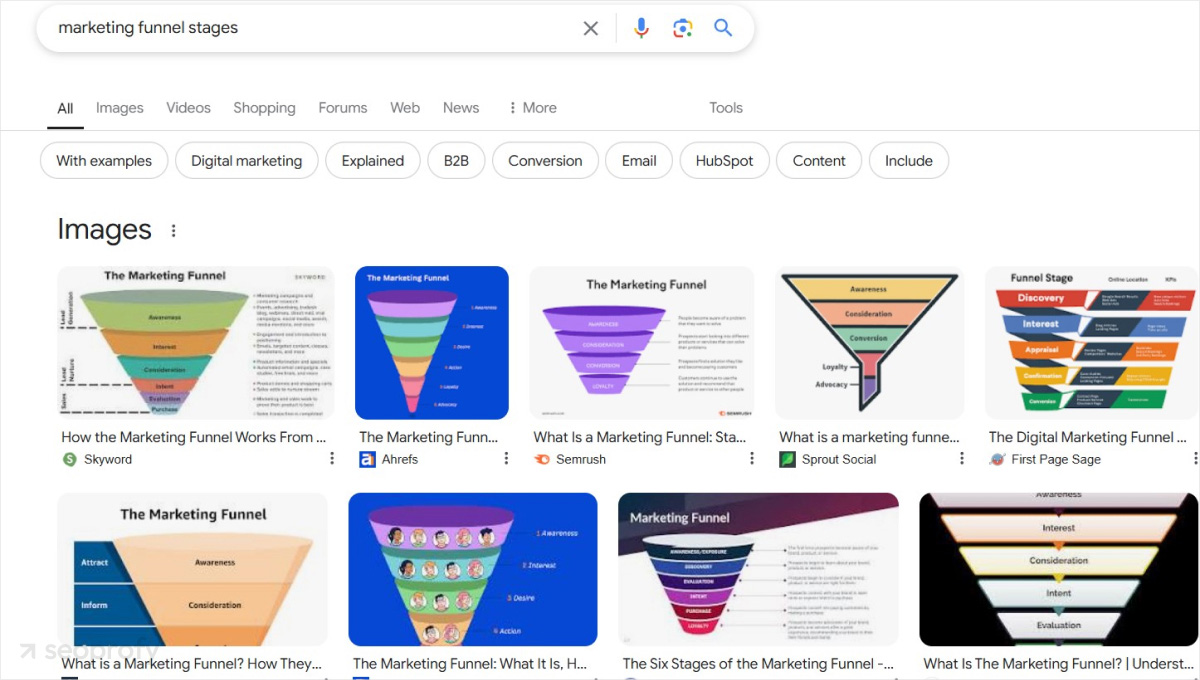
Benefits of Organic Search
It takes time and effort to build your organic search presence, but the benefits make every minute and dollar you spend totally worth it, and here are some of the main reasons why:
- Trust and credibility: When your site shows up at the top of search results, it makes a statement: you’re there because you’ve earned it, not because you paid. That’s why users are more likely to click on organic results.
- Cost-effectiveness: While paid search demands constant spending so your website can stay visible, organic search keeps paying off long after you’ve created the content. The ROI of SEO is more stable since search engine optimization keeps bringing in visitors for months or even years after.
- Competitive advantage: Ranking high in organic search gives your business a powerful shield. Competitors can quickly buy their way to the top, but doing this naturally never happens fast. Once you’ve achieved the top spots, it’s harder for others to push you down, even if they have bigger budgets.
Challenges of Organic Search
Sure, organic search can pay off, but it also comes with its own challenges that businesses should know about. Take a look:
- Time investment: Usually, SEO takes some time. You might have to wait 6-12 months to start seeing real results from your efforts. If you have a new website, you’ll probably have a longer road ahead to reach top positions.
- Constant organic search algorithm changes: Search engines, especially Google, regularly update their algorithms. Major updates can suddenly change rankings you’ve worked hard to achieve. To keep up, you need to continually learn and adapt to what’s important for getting ranked.
- Resource-intensive content creation: Producing top-notch content that deserves good rankings takes a lot of resources. You’ll need talented writers, SEO specialists, and tech experts. Every single piece of content needs research and optimization to remain relevant. Plus, you’ll have to invest in tools for keyword research, ranking tracking, and more. All of these aspects add to your expenses.
What Is Paid Search?
The paid search involves paying to display ads in search engine results based on relevant terms. Different case studies show that the impact of paid search on business growth can be immediate. When someone enters words related to your business, your ad will appear above or below organic results, tagged with a little “Ad” label.
You only get charged when a searcher clicks on your advertisement. That’s why it’s often called pay-per-click (PPC) advertising.
How Paid Search Works
When you run paid search campaigns, your ads can appear in several formats depending on your goals and what you’re advertising. Here’s how different types of paid search results look and work.
Text Ads
This is the most common type of search ad that appears at the very top of the page. Text ads contain information similar to that of standard organic search results, but they’re also marked with a small “Sponsored” label.
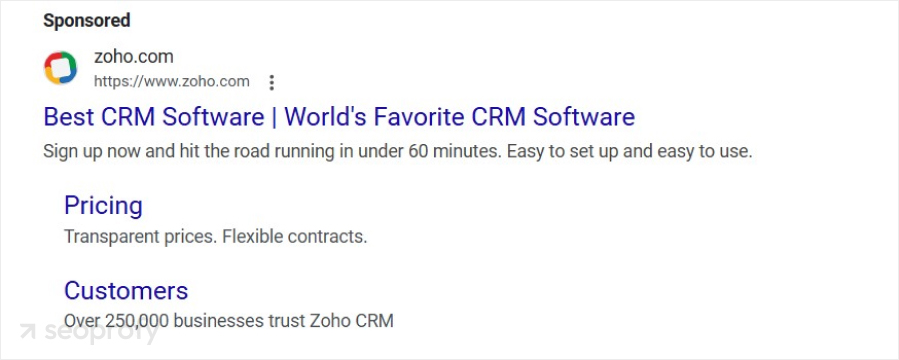
Shopping Ads
When someone searches for products like “marketing books,” Google displays an elegant carousel of items at the top of the results. Each item is in its own little card and shows you everything you need to make a quick decision:
- A picture of the product
- The name
- Price
- Store name
- Ratings and the number of reviews, if available
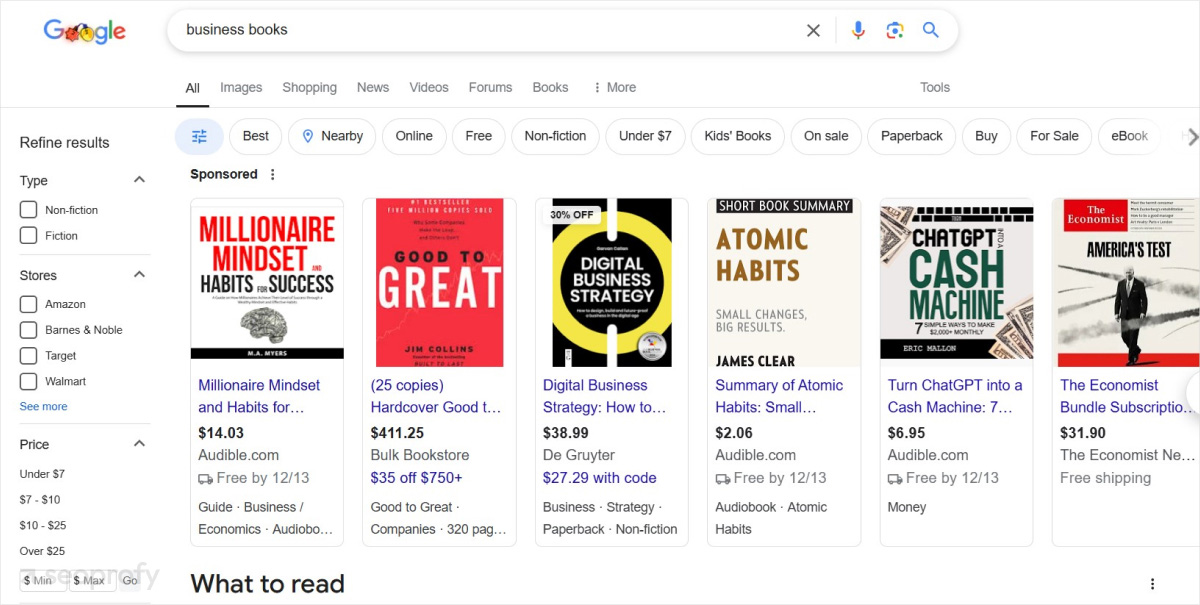
Local Service Ads
Search for “HVAC near me” and you’ll get search results with:
- Business name and photo, if available
- Star rating and review count
- Working hours
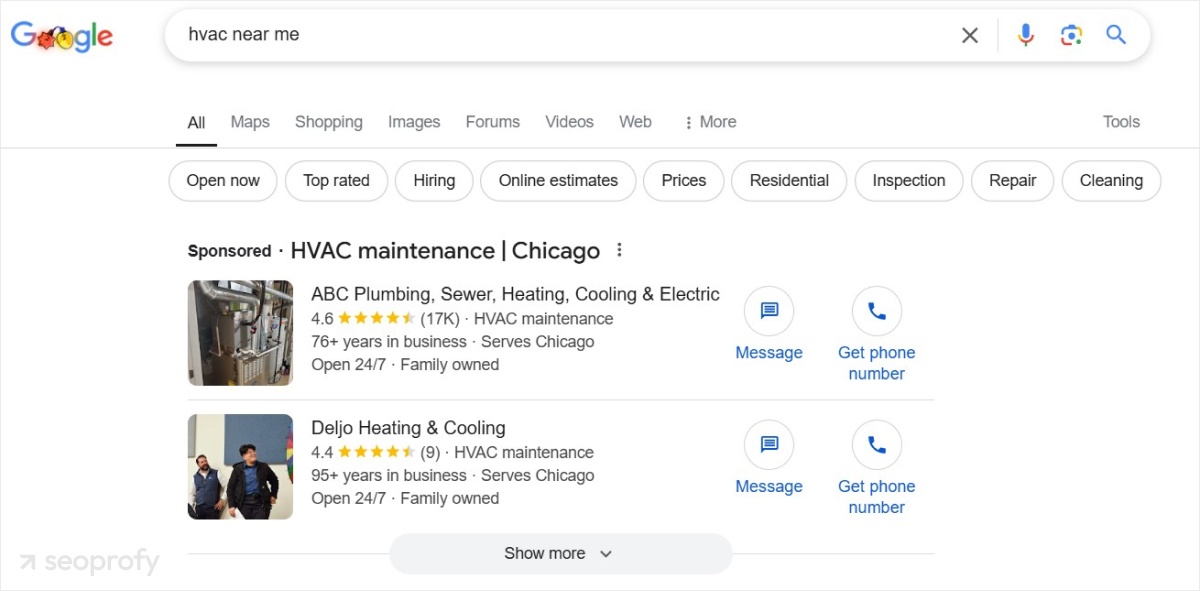
Responsive Search Ads
These ads automatically modify their layout and content according to the available space and the most effective options.
- Marketers submit several headlines (around 15) and descriptions (up to 4)
- Google experiments with different combinations to determine what performs best
- The ads learn over time by watching which versions people click on most
- They can change their size automatically to fit whatever ad space is available.
Advantages of Paid Search
If waiting isn’t an option for you, you’ll definitely benefit from paid search since it delivers results from day one. Let’s find out some more reasons why businesses decide to invest in paid search campaigns:
- Precise targeting: Paid search offers incredible control over who sees your ads. You can aim for people based on their location, down to the specific zip code, the time of day, what device they’re using, and more.
- Complete budget control: You decide exactly how much to spend, down to the penny. You can set daily budgets, adjust bids on the go, and even pause campaigns whenever you need to.
- Quick testing and learning: You can try out different messages, deals, and landing pages quickly. In just a few days, you’ll gather enough data to know which version is the most effective.
Challenges of Paid Search
Like any powerful tool, paid search has its challenges. The lure of getting instant visibility is appealing, but be aware of the following downsides of this approach:
- Costs are going up: Every year, competition makes click costs rise. In competitive fields like insurance or legal services, popular paid search keywords can cost up to $10 per click. Even if you’ve got a big budget, rising costs mean the ads need to bring in enough value to justify these high costs.
- Click fraud and invalid paid search traffic: Not all clicks come from real potential customers. Sometimes, competitors might click on your ads to waste your money, or bots generate fake clicks. Search engines do have systems to detect these, but a few fake clicks may still get through, which just drains your budget.
- Dependency risk: Businesses may become too dependent on pay-per-click advertising. If you’re relying solely on paid traffic, just switch off your campaign, and you may vanish from view immediately. This can be a problem if costs suddenly spike or you have to cut back your budget.
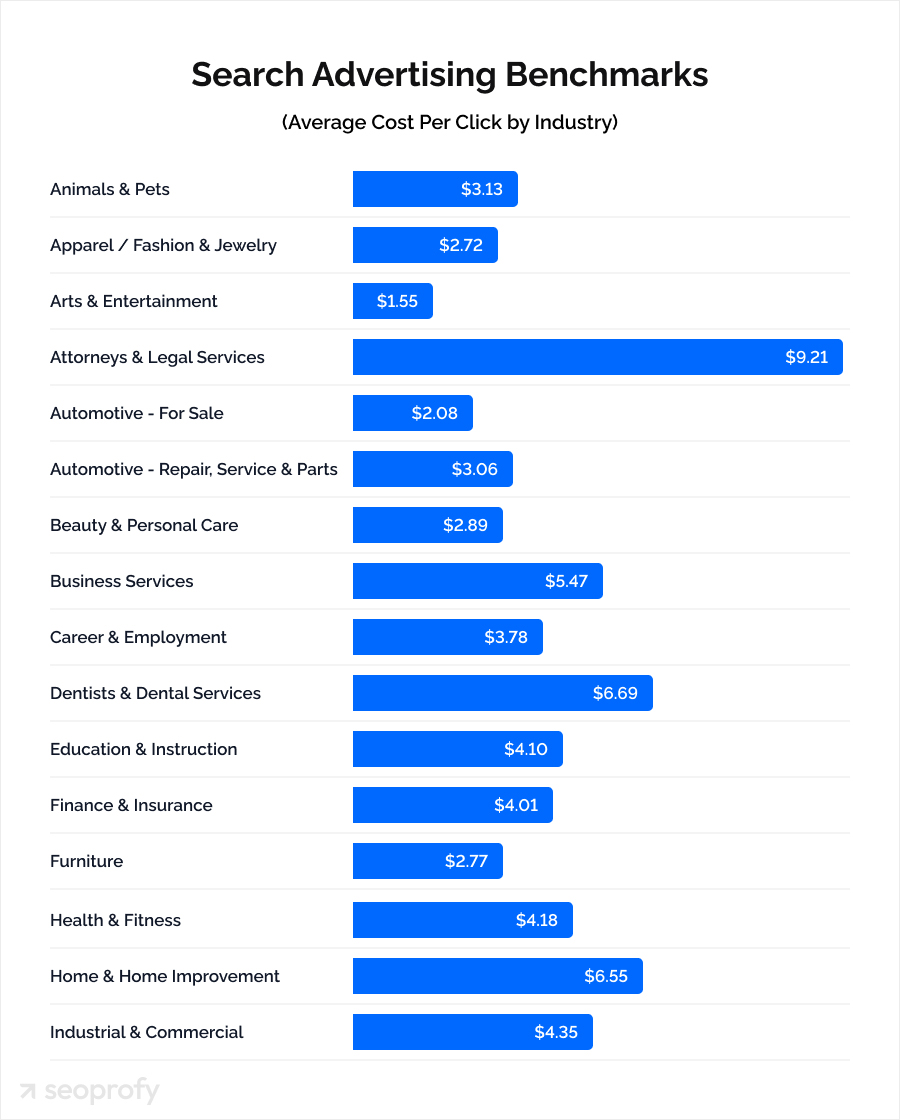
Organic Search vs Paid Search: The Key Differences
So, generally, organic and paid search are totally different roads to the same destination — getting noticed in search results. We hope you’ve got a basic idea of what each one is about, but let’s get a bigger picture and understand the difference between organic and paid search. Here’s a detailed organic search vs paid search comparison table:
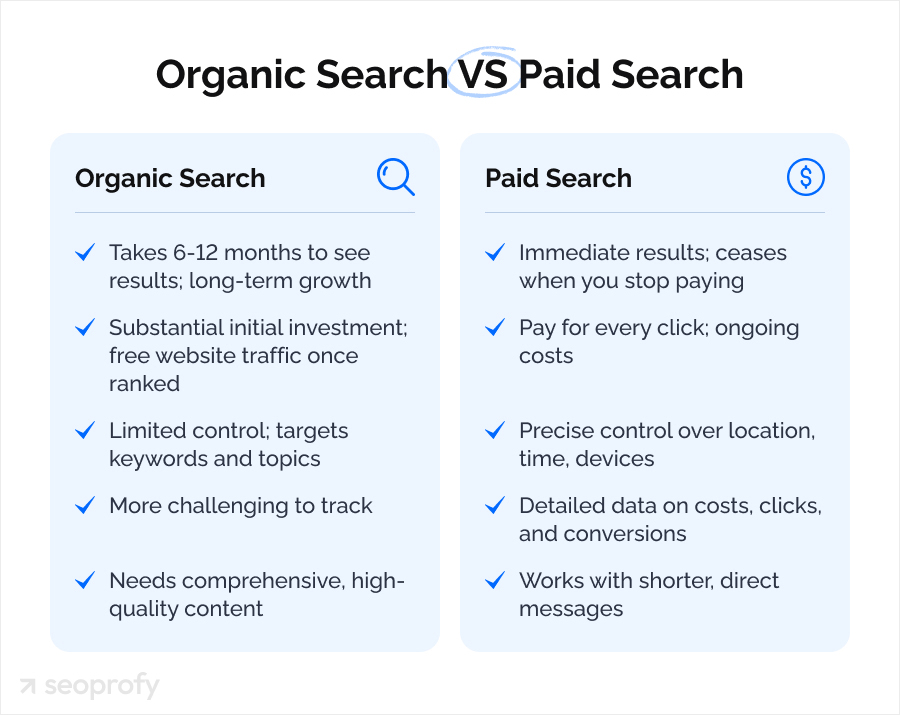
| Aspect | Organic search | Paid search |
| Timing and result stability | Takes 6-12 months to see results; long-term growth | Immediate results; ceases when you stop paying |
| Cost structure | Substantial initial investment; free website traffic once ranked | Pay for every click; ongoing costs |
| Targeting | Limited control; targets keywords and topics | Precise control over location, time, devices |
| Tracking | More challenging to track | Detailed data on costs, clicks, and conversions |
| Content requirements | Needs comprehensive, high-quality content | Works with shorter, direct messages |
| Algorithm impact | Can fluctuate when search engine algorithms change | Stable as long as you keep paying |
| User behavior | Attracts researchers and shoppers | Feasible to attract ready-to-buy customers |
| Brand building | Builds passive brand recognition | You control the messaging; not naturally attracted shoppers |
Timing and Results
In the debate of organic vs paid search, PPC ads are definitely a winner for immediate results. Organic search is all about patience. The first few months might feel slow, with little visible progress. But after 6-12 months of consistent effort, be ready to see your rankings grow.
On the flip side, paid search gives you immediate results. Start your PPC campaign today, and boom — you’re on the first page of search engine results. But quick fame doesn’t last. If you stop paying, you’ll disappear just as fast.
Cost Structure
When it comes to the cost of organic search vs paid search, a competitive SEO strategy requires some initial investment. You’ll be spending money on content creation and technical optimization, and if you don’t want to do this yourself or don’t know how to do it right, you’ll need SEO professionals. But once your content is ranking well, it will be bringing in organic search traffic without the cost of paid search. Some pages can keep attracting visitors for years with little maintenance, so the cost of SEO is worth it.
Contrast this with paid search, where you’re paying for every single click.
Targeting Control
Paid search gives you amazing precision. You can choose to show ads only to relevant users in specific neighborhoods, during certain hours, using particular devices.
With organic search initiatives, it’s more hands-off. You optimize your content for the relevant keywords and topics, but you can’t choose exactly a target audience who will see your listings or when they pop up.
Performance Tracking
Paid search is every data nerd’s paradise — measuring paid search ROI is easy. You can keep tabs on costs per click, conversion rates, and return on ad spend, and you find out which ad versions are killing it. All this data is in your dashboard and is updated live.
Organic search can be a bit of a mystery. While you can still track traffic and rankings, linking specific keywords to conversions got more challenging when Google decided to encrypt search terms. You’ll need more advanced paid SEO tools and expertise in measuring organic search success to see the whole picture.
Content Requirements
To succeed in organic search, your content needs to be deep and high-quality. It should fully answer user questions, cover topics in detail, and stay fresh and relevant.
Paid search can work with shorter, punchier messages. Your ads need to grab attention and offer relevant solutions. The landing page is key, too, but the immediate standard for content is lower.
Algorithm Impact
Organic rankings can take a wild turn when search engines adjust their algorithms (though solid quality content usually holds strong).
Paid search is more consistent. Even if competition raises costs, your ads will continue to run regularly as long as you’re willing to pay the going rates.
User Behavior
In the organic search vs paid debate, natural listings may tend to attract users in the research phase, while paid ads target more effectively users with higher purchase intent. However, both strategies can effectively capture different stages of the buyer journey.
Brand Building
Organic rankings help build passive brand recognition — people start linking your brand with specific topics or solutions.
On the other hand, paid search is about actively promoting your brand, giving you control over how it shows up and what message you want to get across.
When to Use an Organic Search Strategy
You want sustainable traffic that doesn’t depend on advertising budgets. And that’s exactly the case when you should opt for search engine optimization. Consider the following, more exact situations when organic search can become your go-to option:
- You have to compete with industry giants: Some may think that SEO is a lost cause in highly competitive markets. But here’s the truth: even if big companies get 1 million visits per month from search, getting just 1% of that traffic means you can expect 10,000 website visitors. That’s a solid number of potential customers for smaller businesses, especially if you focus on niche areas that the big corporations might overlook.
- You want to build authority in your field: Your business is focused on becoming a trusted expert. You have valuable insights to share and aim to be the top resource in your industry. SEO will help you showcase your expertise by creating content that answers people’s queries.
- You have a content-rich business model: You run a blog, news site, educational platform, or any business with much useful content. SEO will allow you to get that content into the hands of people searching for knowledge in your area.
- You want to own your local search: Local SEO will let you appear in “near me” searches and build lasting website’s visibility in your community.
- You want to put your search engine marketing on autopilot: If you’re a supporter of a more solid approach, one that will deliver results continuously, SEO offers better value for your investment.
When to Use a Paid Search Strategy
Yet, sometimes, waiting for organic search engine optimization to work out isn’t an option. Here’s exactly when a paid search campaign makes sense:
- You’re just getting started: If you’re launching a new business, waiting months for organic traffic isn’t realistic when you need customers now. Paid search puts you in front of potential buyers immediately. You can still let your organic presence grow in the background, but paid ads will start driving leads and sales from day one.
- You have time-sensitive offers: When you sell early bird tickets for a summer festival, these need to sell fast. Standard search listings can take a considerable amount of time to appear at the top, so paid search is your only solution here to promote your offerings.
- You want to test the water: Paid search is great for quick market research. If you want to see if your new product idea is promising, test out different price points, or experiment with various marketing messages, launch a paid search advertising campaign and watch the reactions to it.
- You sell high-value products or services: If you’re selling premium products or services, like enterprise software or luxury goods, paid search is often worth it. When each new customer pays you thousands, spending $2-3 per click to acquire them becomes a no-brainer.
Organic Search vs Paid Search: Best Practices to Use Them Together
So, at the end of the day, the actual question isn’t about paid search vs organic search, but rather, “How can we best use both to reach our goals?” In most scenarios, there’s no need to favor one approach over the other. Consider how to integrate both methods:
Share Data Between Channels
Use paid search as your testing ground. When you find keywords that convert well in ads, you can start choosing keywords for SEO and crafting organic content centered around those terms.
Or vice versa — observe which organic pages perform best and boost them with targeted ads. If a blog post is already ranking well, imagine what a little paid push could do.
Cover All Your Bases
You can show up twice for important searches. Why not? Both paid and organic search engine results mentioning your name will create a presence that’s hard to ignore.
Time It Right
Popular content deserves an extra boost during busy seasons. For instance, a well-performing gift guide can attract more buyers during the holiday season when supported by advertising.
Balance Spending on Organic and Paid Search
Analyzing your content’s organic ranking helps determine the right moments to invest in advertisements. For example, during busy shopping periods or special occasions.
But when your web pages already appear at the top of search results, you can relocate your advertising budget to more relevant business areas.
Organic Search vs Paid: No Winners?
Sometimes, you need immediate visibility (hello, Black Friday sale!), and paid search lets you achieve this goal. Other times, it’s about the long haul, establishing your credibility in your field with good content, and that’s where organic SEO comes in. So, there’s indeed no winner.
Need guidance on your organic vs paid search strategies?
Ask SeoProfy. We’re a professional SEO company with extensive experience in different business sizes, models, and niches. Reach out to us for a free consultation, and expect practical advice on whether SEO suits your business and how exactly you can benefit from it.



